.jpg)
June 2020
AAVMC Joins FASHP Organizations in Denouncing Racism,
Affirming Principles of Inclusion
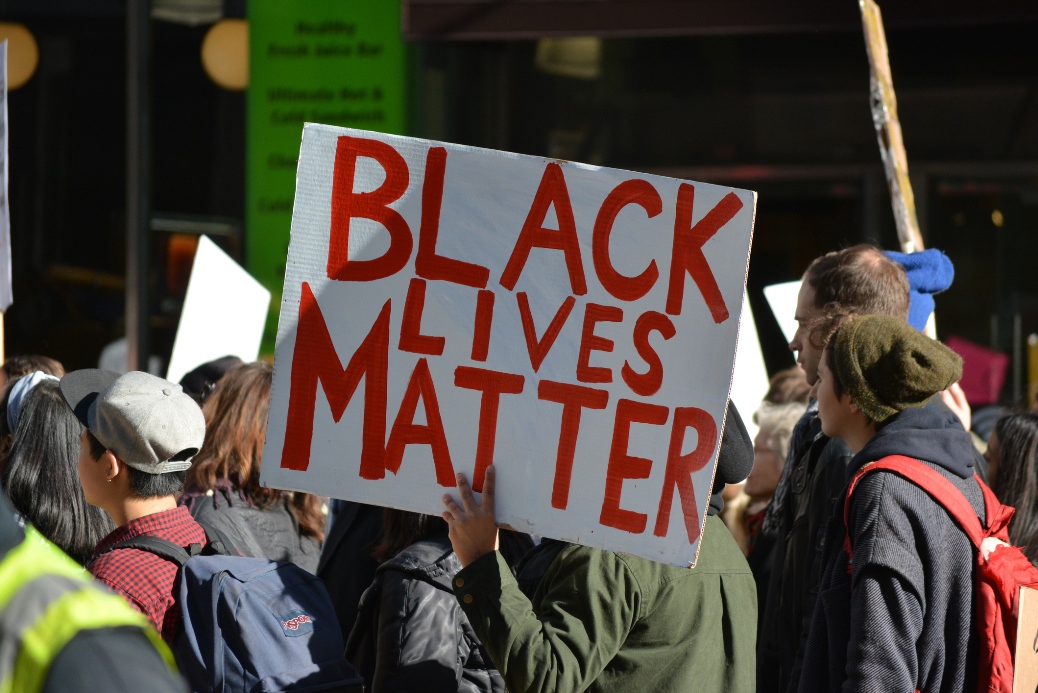
In the wake of recent events of police brutality, AAVMC moved quickly to publicly reaffirm its Principles of Inclusion by sharing a message with more than 3,000 stakeholders. “We note the disproportionate way that the COVID-19 pandemic is affecting communities of color and we acknowledge how recent reports of maltreatment and violence toward minorities can prompt feelings of fear, anxiety, and grief, especially when considering the long and persistent history of these events,” read one section of the statement.
Over the past week, nearly every member of the Federation of Associations of the Health Professions (FASHP) has issued a statement denouncing racism and affirming their positions on diversity and inclusion, according to CEO Dr. Andrew T. Maccabe, who is also president of FASHP.
“Racism is a public health issue,” said Maccabe. “Health professions education associations must come together to combat the injustice that denies people their humanity, jeopardizes their safety, and cheats them out of their best health. African Americans and other members of communities of color live with these threats daily.”
“Our vision is for academic veterinary medicine to be a trusted leader and valued partner in advancing health, which is affected by many different things besides disease,” said Maccabe. “When we are confronted with a public health issue of such magnitude and consequence, we have an obligation to share information with our stakeholders that will help them become positive agents for change.”
Following are some excerpts of statements from other FASHP organizations.
ASPPH Statement: Racism is a Public Health Crisis
America faces three major crises right now, a viral pandemic the likes of which we have not seen since 1918, an economic collapse the likes of which we have not seen since 1932 at the onset of the Great Depression, and the ongoing struggle of civil rights and equity, the likes of which we have not seen since 1968. These are synergistic conditions, which in tandem have enormous implications for public health. And, sadly, they all expose the continuing problem of injustice, inequality, and structural and systemic racism in America.
The more we learn about COVID-19, the more we note the disproportionate impact it has on communities of color, which are also burdened by the economic pain caused by the pandemic and which lack the resources to absorb the loss of jobs and income that is currently reverberating across the nation. Finally, we witness example after example of the egregious discrimination that many of our fellow citizens face daily, most recently evidenced in the death of George Floyd at the hands of white Minneapolis police officers.
APA: We are Living in a Racism Pandemic
We are living in a racism pandemic, which is taking a heavy psychological toll on our African American citizens. The health consequences are dire. Racism is associated with a host of psychological consequences, including depression, anxiety and other serious, sometimes debilitating conditions, including post-traumatic stress disorder and substance use disorders. Moreover, the stress caused by racism can contribute to the development of cardiovascular and other physical diseases.
AAMC Statement on Police Brutality and Racism in America and Their Impact on Health
The brutal and shocking deaths of George Floyd, Breonna Taylor, and Ahmaud Arbery have shaken our nation to its core and once again tragically demonstrated the everyday danger of being black in America. Police brutality is a striking demonstration of the legacy racism has had in our society over decades. This violence has eroded trust of the police within black and other communities of color who are consistently victims of marginalization, focused oppression, racial profiling, and egregious acts of discrimination….
As healers and educators of the next generation of physicians and scientists, the people of America’s medical schools and teaching hospitals bear the responsibility to ameliorate factors that negatively affect the health of our patients and communities: poverty, education, access to transportation, healthy food, and health care.
Racism is antithetical to the oaths and moral responsibilities we accepted as health professionals who have dedicated our lives to advancing the health of all, especially those who live in vulnerable communities.
AACOM Statement on Racism and Injustice
Racism continues its grip on our country like an incurable disease failing to respond to treatment. The challenge is how do we eradicate something that is so pervasive, so insidious, hiding beneath the surface until the flames are re-ignited.
The osteopathic medical education community has an opportunity to be part of the answer, but change won’t happen unless everyone leans in. Listening creates awareness, awareness leads to openness, openness allows room for education and training, and education helps us all to think and act differently. Step one is to engage our staff, learners, faculty and others in an opportunity to not just listen, but to truly hear what is being said. But that’s not enough. It must also lead to other steps to help us actively seek out racism – overt and implicit – so that we can change our practices, reshape our focus and ultimately stamp it out by creating new ways of doing business.
CSWE, “Two Pandemics”
Since the death of George Floyd in Minneapolis in late May, daily protests have taken place around the world as people express their shared grief and outrage at the growing number of unarmed African Americans who have died recently at the hands of police.
These recent wounds have opened up deep societal scars because we are in the middle of two pandemics that disproportionately affect communities of color. COVID-19 has claimed more than 100,000 American lives, and unequal access to quality medical care has contributed to the incredibly disproportionate impact of COVID-19 among traditionally underserved Black and Brown populations. The other pandemic—institutional racism—has been responsible, in one way or another, for untold fatalities for more than 400 years.
ASCO Message to Members
As health care professionals and educators, we abhor bigotry of any kind, and we are appalled by the blatant racism in our society and violence in our communities. We experience the grief of loss, through the COVID-19 pandemic and through the violence of recent events, and witness that our loss is disproportionately affecting minorities and our colleagues, friends, and family of color.
We need to carry the banner for fundamental change in our society so that people of all backgrounds and experiences, especially persons of color, know in their hearts that we value their contributions, respect their dignity, and ensure that they can count on equal treatment under the law. We believe it is important to witness and confront current events, to speak the names of the victims. In our various communities, we must act to ensure that the senseless killing of George Floyd and many others before him, will be a catalyst to a just and equitable society.
AACP Statement on Recent Events
Following the tragic deaths of George Floyd and others, and the public outcry about the manner in which they died, as well as the history of racism in our country, AACP reaffirms our commitment to foster an inclusive community, with diversity of thought, background, perspective and experience.
We also affirm our commitment to racial equality, equity and justice, as an embodiment of our core values of inclusiveness, integrity and excellence. As an organization dedicated to improving health and wellbeing for everyone, we support peaceful protests and positive action to combat racism in all forms and in all communities, and we strongly oppose violence by any group or individual.
AACN Statement on Academic Nursing’s Call for Liberty and Justice for All
As the nation struggles to come to terms with the senseless, tragic killing of George Floyd, and those before him, the time has come to send a clear message that injustice and racism will no longer be tolerated. Together, academic nursing leaders and the larger healthcare community must rally against pervasive inequities in society and move forward with empathy, inclusiveness, and collective action.
As the voice of academic nursing, the American Association of Colleges of Nursing (AACN) is guided by a mission that embraces diversity and promotes inclusive learning environments…. AACN stands ready to help nurses lead in advancing human rights and reducing health inequities by developing a nursing workforce that is compassionate and respectful of the inherent dignity, worth, and uniqueness of every individual.
AUPHA Statement on Racism, Social Injustice, Discrimination, and Violence Against African American and Black Communities
As a diverse and inclusive organization with a history of distinguished African American and Black Board of Directors members, staff, volunteer leadership, and prize recipients, we stand together against racism, social injustice, discrimination, and violence. We are all outraged at the murders of George Floyd and Breonna Taylor at the hands of local police and of Ahmaud Arbery by vigilantes. These horrific killings are only the most recent and visible in our country’s 400-year history of human rights violations against Black communities. AUPHA abhors our country’s history of slavery; structural, systemic, and institutional racism; prejudice and discrimination; and, violence against Black individuals and communities.
APLU & AAVMC Establish Gene-Editing in Animal Agriculture Task Force
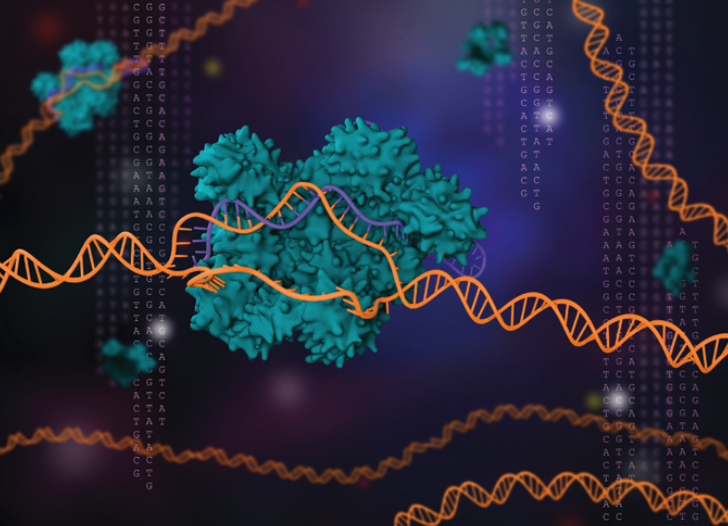
The Association of Public and Land-grant Universities (APLU) and the American Association of Veterinary Medical Colleges (AAVMC) have established a Gene Editing Task Force. Recognizing the potential for gene editing to increase food security and safety, the 11-person panel is comprised of scientists and industry leaders who will map out recommendations for regulating this emerging genomic technology in animal agriculture with appropriate safeguards and procedures.
The need for a task force was born out of a September 2019 symposium, “Gene Editing in Livestock: Looking to the Future,” which the two associations organized. During that event, 23 of the nation’s leading experts from academia, government, industry, and professional groups gathered to examine a series of questions ranging from the nature and safety of this promising technology to its ethical implications.
Symposium participants concluded that work with animal and plant genomes has vast potential for limiting disease and increasing productivity, but agreed that appropriate regulatory processes should be thoroughly considered and structured. Currently the Food and Drug Administration regulates genetic work on food animals as an “animal drug” and the USDA regulates these technologies with crops.
“This is a very promising area of biotechnology that has the potential to unleash enormous progress in terms of food production and security,” said Dr. Noelle Cockett, President of Utah State University and a renowned geneticist who is leading the task force. “Last fall’s symposium featured a series of presentations and discussions which identified and explored important questions and implications related to this emerging technology. These need to be thoughtfully considered and transformed into policy and regulatory recommendations. That’s the goal of this task force.”
To develop a task force, the AAVMC and APLU established a steering committee, which put out a call for nominations. That steering committee selected six people from academia to serve on the task force: Dr. Jon Oatley, Washington State University; Dr. Bhanu Telugu, University of Maryland; Dr. Londa Nwadike, University of Missouri; Dr. Jonathan Beever, University of Tennessee; Dr. Rex Dunham, Auburn University; and Dr. James Murray, University of California, Davis.
The task force will also include Dr. Andrew Rowan, Wellbeing International; Dr. Kathy Simmons, National Cattlemen’s Beef Association; Clint Nesbitt, Biotechnology Innovation Organization (BIO); and an as yet unnamed liaison to the Center for Food Integrity. The task force will be chaired by Dr. Cockett.
“The potential for gene editing to dramatically boost food security globally and reduce the burden on natural resources is enormous, but it must be done carefully and ethically,” APLU President Peter McPherson said. “We are very pleased to partner with AAVMC on this task force, which is bringing together some of the foremost leaders in the world to help recommend a path for government to take to regulate this field in a way that protects all involved while allowing the science to flourish.”
The task force is expected to conduct its first virtual meeting in early summer, and in-person meetings will be held following the relaxation of pandemic-induced social distancing protocols.
The APLU and the AAVMC decided to take action in this area following inquiries from members of Congress to Food and Drug Administration Acting Commissioner Norman E. Sharpless concerning current regulatory processes. That provided the impetus for the AAVMC and the APLU to organize the fall 2019 symposium for leading scientists and other scholars.
“The symposium we presented last fall in partnership with APLU was a big step forward in a very important process,” said AAVMC CEO Dr. Andrew T. Maccabe. “We’re very grateful to the group of respected experts who have agreed to help us move this project forward. We’re also pleased to have the opportunity to collaborate with APLU on a large scale program that has such vast implications for agricultural productivity and disease prevention.”
Discussions and presentations held over the September 2019 day-and-a-half conference explored different facets of the gene-editing issue from a public policy perspective. Conference sessions included Science and Research, Industry Perspective, Bioethics, Public Policy and Regulation, and Communication and Public Engagement.
The APLU and the AAVMC previously teamed up on a multi-year effort designed to address the growing antimicrobial resistance problem. That led to the establishment of the National Institute of Antimicrobial Resistance Research and Education, which is based at Iowa State University and operates in collaboration with a consortium of partner universities and medical institutions.
To examine the program and learn more about the people who participated, please click here.
AAVMC Cancels Summer 2020 Meeting in San Diego
The AAVMC has cancelled its 2020 summer meeting that was originally scheduled for presentation in San Diego. The meeting is scheduled in conjunction with the AVMA’s annual meeting, is open to all AAVMC members and generally features a series of speakers sharing information on current issues and topics in academic veterinary medicine. Because the AVMA was forced to cancel the 2020 AVMA Annual Conference as a result of the COVID-19 global pandemic, the AAVMC elected to cancel its summer meeting as well. The Board of Directors will convene for a virtual meeting in July.
Guidelines and Considerations for Re-engaging Veterinary Medical Students in Clinical Rotations During the COVID-19 Pandemic
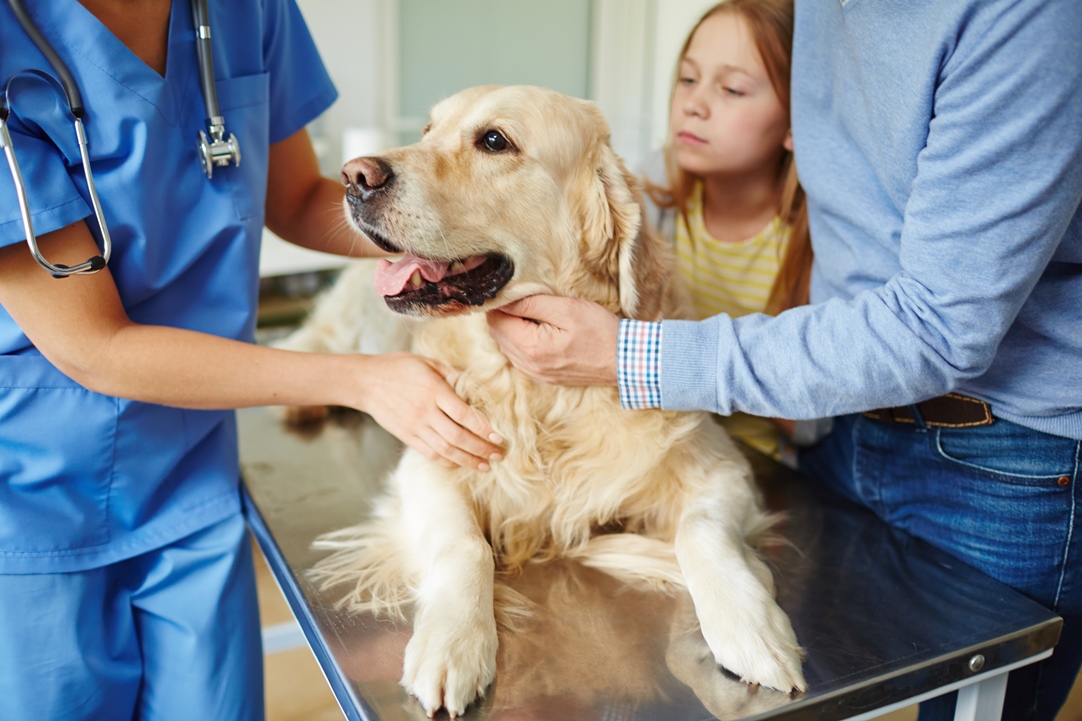
AAVMC member institutions have worked closely together throughout the COVID-19 pandemic to identify best practices, adapt and successfully deliver their academic programs during the crisis environment.
One of the most challenging areas to address has been in the area of providing clinical educational experiences for upper level students conducting clerkships in university teaching hospitals, affiliated clinical sites and externships. A team of five AAVMC member institution representatives was created to analyze the issue and develop a series of recommendations that would assure the safety and wellbeing of students and others, as well as the efficacy of the educational programming.
The AAVMC’s “Guidelines and Considerations for Re-engaging Veterinary Medical Students in Clinical Rotations During the COVID-19 Pandemic” is intended to provide informed guidance to member institutions. Individual colleges and schools must act in accordance with university policies, as well as national, state and local regulations developed to contain and mitigate the public health crisis.
AAVMC to Offer Virtual Veterinary Summer Scholars Symposium August 4-6

This summer the AAVMC, with support from Boehringer Ingelheim Animal Health, will be offering a virtual Veterinary Summer Scholars Symposium as a culminating experience for the Veterinary Summer Scholars Programs. The program will feature virtual poster sessions to allow students to network and share their research.
While the global pandemic has resulted in significant challenges for the research community, it has also highlighted the importance of research. The AAVMC, along with our sponsors at Boehringer Ingelheim Animal Health, are excited to offer a space for those students who have been able to continue with research in spite of the challenges. Information on the program and updates can be found on the website.
In order to ensure space within the online platform, AAVMC is asking students who plan to present a poster to reserve a poster space by pre-registering here. Pre-registration is available now for students interested in submitting posters to reserve space and we are grateful for AVMA’s continued support of the abstract submission process. The full registration and the abstract submission site will open on June 22. Abstract submissions will close on July 15.
The Combined Degree Colloquium for DVM/PhD students will be on August 7 and will also be moved to a virtual format for 2020. Information about the colloquium as well as additional online opportunities for students in the Veterinary Summer Scholars Programs can be found on the Veterinary Summer Scholars Symposium webpage.
Questions about these events can be sent to Dr. Caroline Cantner at ccantner@aavmc.org.
Nomination Period Open for New, Hybrid 2020–2021 AAVMC Leadership Academy

In response to ongoing public health concerns, the AAVMC will transition the Leadership Academy from a series of three in-person sessions to online programming followed by an in-person capstone experience in March 2021.
Online programming will focus on small group workshops and networking and will include the full breadth of content provided during the in-person sessions. The in-person capstone session will be held March 1-3, 2021 in Washington, D.C. immediately prior to the start of the AAVMC Annual Conference.
“As we have transitioned all of our learning platforms to a virtual world, we have adapted to many challenges, but equally have found a number of hidden opportunities to engage and expand our educational reach and impact,” said Leadership Academy Director Dr. Rod Bagley, chair of the Department of Veterinary Clinical Sciences at the Iowa State University College of Veterinary Medicine.
The academy program will begin in September 2020. Monthly one-day virtual sessions with independent and smaller working group sessions scheduled as needed will provide a minimum of 60 hours of direct contact.
Virtual Sessions
- September 11, 2020
- October 9, 2020
- November 6, 2020
- December 4, 2020
- January 8, 2021
- February 5, 2021
Capstone Session
- March 1-3, 2021, Washington, D.C.: In-person capstone session
Topics to be considered during the 2020-2021 academy include:
- Who am I as a Leader?
- Leaders vs. Managers
- The Impact of Followers
- Communication Styles and Strategies
- Individual and Group Decision Making Strategies
- Planning Strategically
- The Dynamics of Team
- Crisis Management – The New Reality
- Stress and Resiliency for Leaders
- Lessons from the Leadership Trail
- The Leader Out Front
The AAVMC Leadership Academy has been providing leadership development for emerging leaders in academia and a forum for building lasting ties between faculty members at veterinary schools and departments around the world since 2012. The AAVMC is looking forward to facilitating the continued development of these important leadership ties and providing a forum for networking in a new, virtual format.
The Academy is unique in its focus developing tomorrow’s leaders of academic veterinary medicine. The curriculum address the components of effective leadership by following three recurring threads that include communication skills, emotional intelligence and living leadership (applied leadership skills). More information on the Leadership Academy can be found on the Leadership Academy webpage.
Enrollment for the 2020-2021 Leadership Academy opens June 2, 2020 and closes August 2, 2020. Thanks to the generous support of Elanco, AAVMC is able to offer enrollment in the Academy with no registration fee. The only costs to the institution are the participant time and travel and lodging support for the participants to attend each session. Nominations to the Leadership Academy are made through the dean’s office.
In order to maintain the small group and networking experience that is the hallmark of the AAVMC Leadership Academy we will continue to offer a limited number of slots for the 2020-21 Academy. Member institutions nominate candidates to the Leadership Academy through the Office of the Dean. For information about the enrollment process, please email the Leadership Committee staff liaison, Dr. Caroline Cantner ccantner@aavmc.org.
Wellbeing Experts Focus on Pandemic Impact on Students
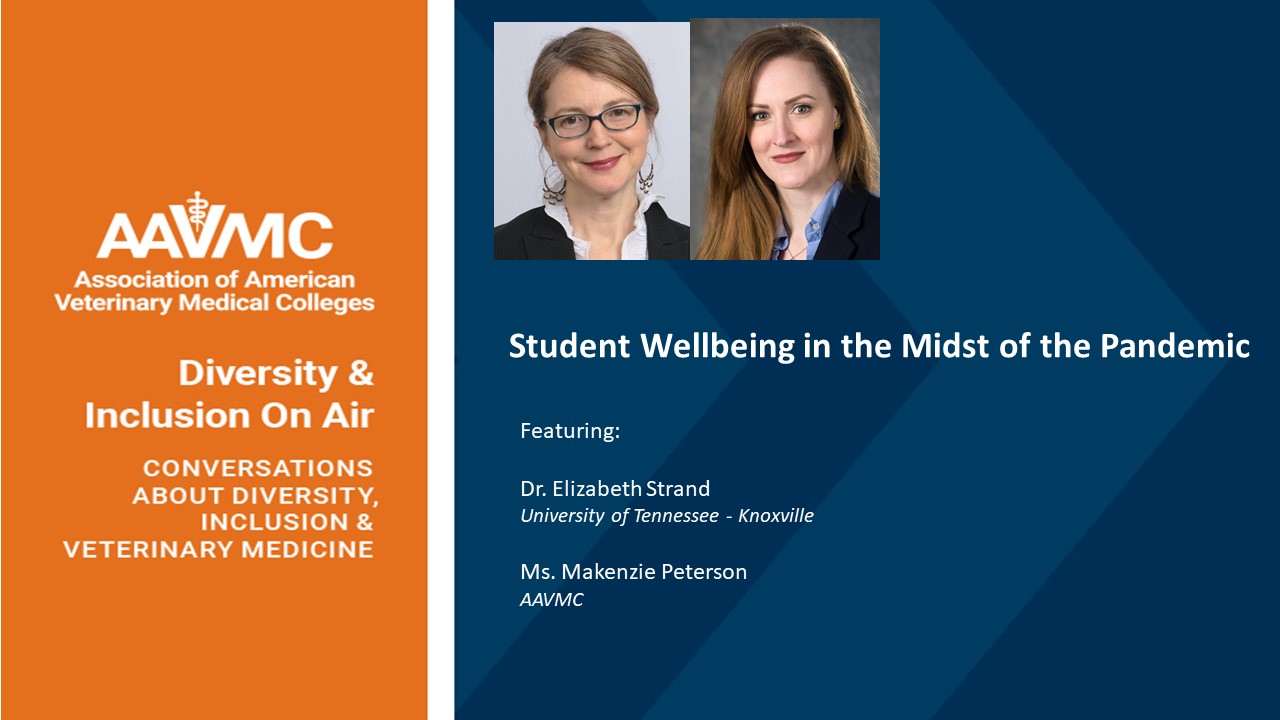
The COVID-19 pandemic has been devastating in terms of mortality, morbidity and economic impact. But the virus has also exacted another insidious toll: emotional health and wellbeing.
AAVMC Senior Director for Institutional Research and Diversity Dr. Lisa Greenhill recently focused an edition of her acclaimed podcast “Diversity & Inclusion On Air” on “Student Wellbeing in the Midst of the Pandemic.”
Guests included AAVMC Director for Wellbeing Makenzie Peterson and Dr. Elizabeth Strand of the University of Tennessee. The experts explored a range of issues and coping strategies for students functioning in a completely changed learning environment and job market. Click here to access the podcast.
A One Health Approach to Dealing with the Pandemic
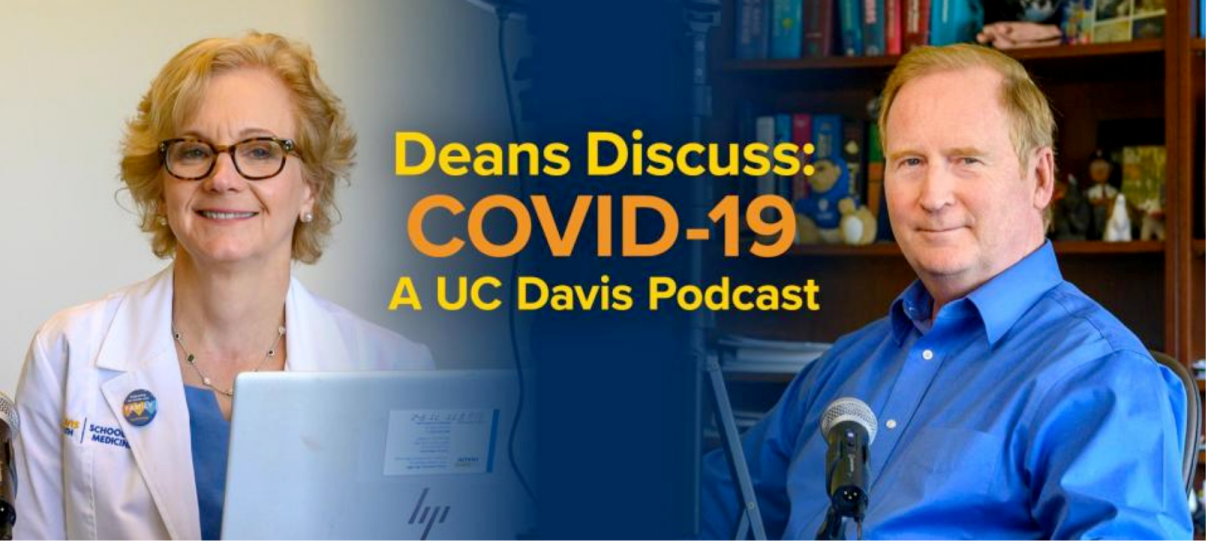
Different aspects of the collaboration between human and veterinary medicine in addressing the COVID-19 pandemic are being explored in a novel new podcast series featuring the deans of the Schools of Medicine and Veterinary Medicine at the University of California Davis.
In the “Deans Discuss: COVID-19” video podcast, hosts Allison Brashear, dean of the School of Medicine, and Michael D. Lairmore, dean of the School of Veterinary Medicine, examine the collaboration taking place across UC Davis.
New editions of the podcast air by 3 p.m. on Monday afternoons. The first episode focused on testing aired June 8. This and future episodes are available on the Deans Discuss: COVID-19 website.
From the start of the pandemic, UC Davis has been at the forefront of COVID-19 research, according to university officials. America’s first community-acquired case of COVID-19 arrived at UC Davis Medical Center on Feb. 26.
Experts from UC Davis’s human and veterinary medical centers immediately began working together to find solutions to the new global threat. Today their collective experience in virology, zoonotic diseases, human health, medicine, engineering and animal model research is helping tackle the crisis at all levels, from the field and laboratory to the hospital bed and beyond.
AAVMC 2021 Annual Conference Call for Proposals
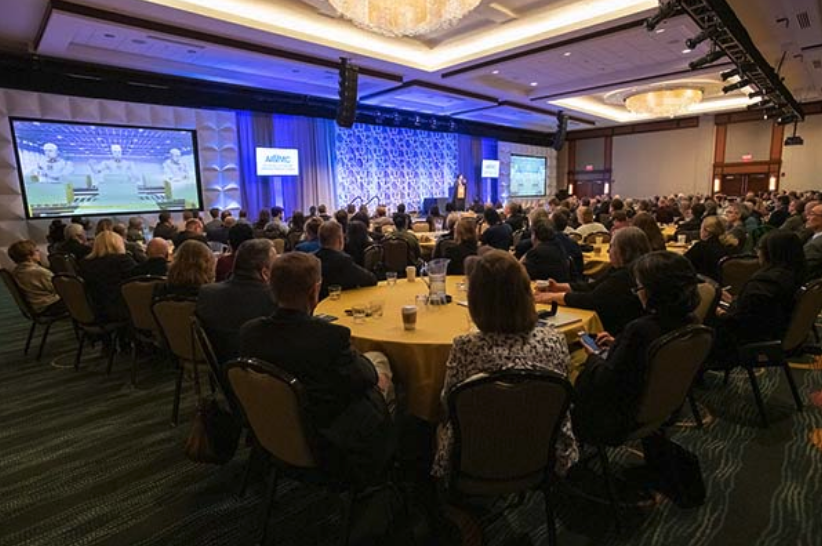
The American Association of Veterinary Medical Colleges (AAVMC) is soliciting presentation proposals for faculty and students at member institutions to share their work and ideas during the Catalyze 2021 Conference, March 4-6, 2021 in Washington, D.C. Proposals for educational sessions should be submitted no later than September 11, 2020.
The theme of our 2021 conference is “Catalyze 2021: Connect & Innovate in the Face of Global Challenges.” Following extensive work with a respected meeting and conference management consulting firm, the AAVMC is introducing some exciting changes this year.
Instead of focusing on diversity and inclusion programming every other year in the Iverson Bell Symposium, we are now featuring content in this vital area during every conference. To foster more interaction among registrants, we are providing networking lunches.
Proposals will be considered in the following categories.
- Research
- Diversity
- Curriculum
- Institutional Climate
- Education
- Artificial Intelligence/Virtual Reality
- Future of Innovation
- Finance
- Mental Health
The following attributes are encouraged for educational sessions:
- Evidence-based presentations that examine research and survey trends
- Presentations that feature interactive learning and/or small group discussion
- Proposals from collaborative, multi-institutional teams
- Incorporation of interprofessional perspectives
- Proposals with an international or global focus
Find detailed information regarding proposal submission here.
VMHP Transitions into New AVWP

Following the establishment of a full-time AAVMC Director of Wellbeing position and the recruitment of Makenzie Peterson, the former Veterinary Mental Health Professionals (VMHP) group has been restructured and transitioned into the new Academic Veterinary Wellbeing Professionals (AVWP). AVWP is a component of the AAVMC Academic Affairs Committee.
The VMHP group began coalescing in 2016 following widespread recognition of the need to develop programming to support veterinary student wellbeing. Over the past several years, the program has evolved to meet growing needs for programming in this area.
AAVMC has expanded the scope of their wellbeing programming to encompass students, staff, residents/interns, faculty, and leadership, and Peterson is now developing a systems-oriented, community-based approach to improving wellbeing for all of academic veterinary medicine.
The AVWP works closely with the American Veterinary Medical Association on wellbeing programs.
The new name, structure, and membership is inclusive of licensed mental health professionals within academic veterinary medicine and also full or part-time staff members at an AAVMC member institution where it explicitly states in their institutional job description that providing formal wellbeing services to their CVM community (mental health support or wellbeing programming) is a major focus of their role responsibilities.
Call for Volunteers: CBVE Working Group Call for Volunteers Deadline June 15
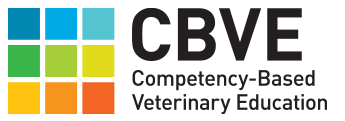 The AAVMC Competency-Based Veterinary Education Working Group is seeking nominations of individuals with passion for, and the time to commit to, advancing excellence in veterinary education.
The AAVMC Competency-Based Veterinary Education Working Group is seeking nominations of individuals with passion for, and the time to commit to, advancing excellence in veterinary education.
Volunteers are being sought for the Research, Educator & Curricular Development, and Advocacy groups. For more information about the opportunity, please click here.
Interested faculty from AAVMC member institutions are invited to submit a one-page letter expressing their interest, a brief CV targeted to the criteria listed in this “Call for Volunteers” document, and an administrative letter of institutional support for time and travel expense.
Nomination documents should be forwarded to AAVMC Member Engagement Manager Lawann Blunt at lblunt@aavmc.org by June 15, 2020. The volunteer commitment is a three year opportunity beginning July 1, 2020.
Questions about the opportunity may be directed to CBVE co-chairs Dr. Jennie Hodgson (jennieh@vt.edu) and Dr. Kristin Chaney (kchaney@cvm.tamu.edu).
CIVME Welcomes New Council Members

A number of new members have joined the Council for International Veterinary Medical Education (CIVME) as several founding members have completed their terms of service. The CIVME Council also elected Dr. Martin Cake of Murdoch University in Australia as Chair and Dr. Ehab Abu-Basha of the Jordan University of Science & Technology as Chair-elect. Dr. Abu-Basha is expected to assume the role of Chair in 2021-22.
CIVME council members are selected from nominees in recognition of their high level of engagement in veterinary education, and their regional and international connections within the global veterinary education community. Council members must have an active association with a veterinary education establishment, but do not need to be from an AAVMC member institution.
New council members include:
- Core Member Representing US and Canada: Dr. Elpida Artemiou Ross University, West Indies*
- Alternate Member Representing US and Canada: Dr. Kimberly Carney, Lincoln Memorial University, US
- Alternate Member Representing Continental Europe: Dr. Christin Kleinsorgen, University of Hannover, Germany
- Alternate Member Representing the UK and Ireland: Dr. Sarah Baillie, University of Bristol, UK
- Alternate Member Representing Central, Latin and South America, Caribbean: Dr. Luiz Zarco, Universidad Nacional Autónoma de México, México
- Alternate Member Representing Australia and New Zealand: Dr. Eloise Jillings, Massey University, New Zealand
*Note: CIVME now includes Ross University, St. George’s University and St. Matthews University within the US and Canada region for council purposes.
All of their biographies are on the CIVME Roster page.
Background on CIVME is on the CIVME homepage.
Cain Discusses Research Program Implications of COVID-19 at NCFAR
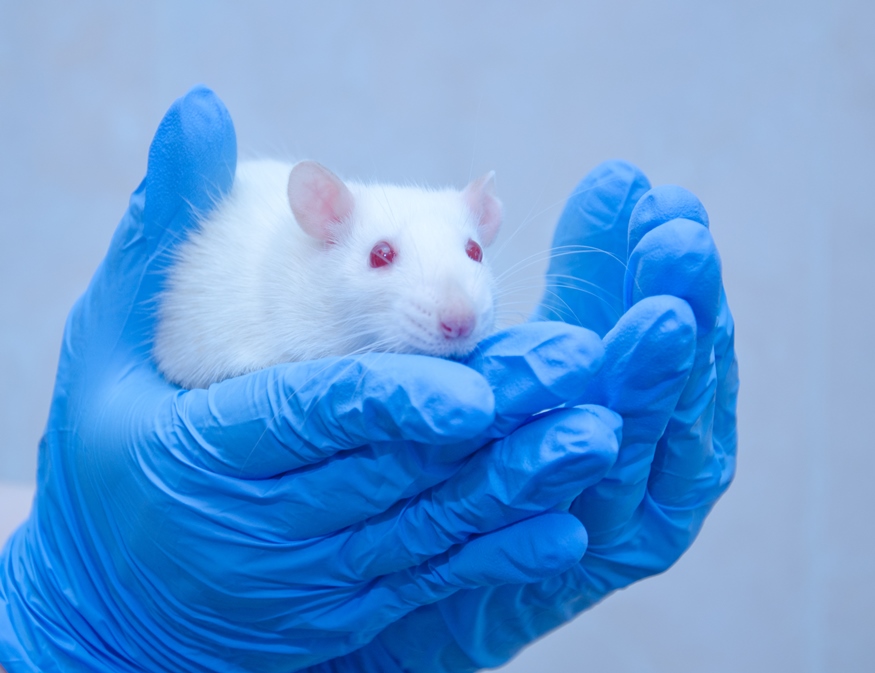
AAVMC Governmental Affairs Director Kevin Cain recently presented remarks on how the COVID-19 emergency is affecting university research at member institutions during the virtual annual meeting of the National Coalition for Food and Agricultural Research.
Much of the ongoing research in university laboratories has been disrupted by the pandemic for a variety of reasons, he said, including the evacuation of many workplaces to comply with required social distancing programs. Many university laboratories have also geared up to focus on developing diagnostic and therapeutic approaches to the COVID-19 pandemic, and faced unreimbursed expenses for supplies used for human testing.
He also pointed out that experiments are often a year or more in development and operation and can be thwarted by mid-cycle interruptions and the loss of animal models. Housing and care costs for animals are ongoing, regardless of the research program status. Also, he said, because some laboratory animals have been genetically created to support specific research at specific times, there are cases where they must be destroyed or recreated.
Also, many laboratories are not being reimbursed for supplies used for human testing.
NCFAR is a nonprofit, nonpartisan, consensus-based and customer-led coalition that brings food, agriculture, nutrition, conservation and natural resource stakeholders together with the food and agriculture research community. They actively work to support and sustain federal investment in food and agricultural research, extension and education.
In the News
This Veterinary Lab is the Linchpin in One State’s Coronavirus Testing Approach The Washington PostCongrats, Grad! Virginia Tech Awards One of Its Therapy Dogs an Honorary Doctorate
People
Dogs Caught Coronavirus From Their Owners, Genetic Analysis Suggests
Scientific American
AAVMC Names First Wellbeing Director
DVM360
AAVMC Hires its First Well-being Director
Today’s Veterinary Business
How to Prepare Your Dog to be Left at Home Alone (Again)
The New York Times
$11.3M Grant Strengthens Attack Against Zoonotic Disease
Veterinary Practice News
Auburn University Virologist Involved in Vaccine Trials Discusses Timeline, Expectations
WTVY
This Family’s Repeated Strep Throat Infections Frustrated Their Doctors
The Washington Post
Social Work Expands in Veterinary Hospitals
JAVMA News
WSU is Testing Animals for COVID-19 to Learn More About How the Virus Moves Between Species
The Inlander
Emerging ‘Dis-ease’: US Foreign Assistance Needs to Focus on the Root Causes of Pandemics (opinion)
The Hill
Imaging Technology News
Genetic Selection for Disease Resilience Expected to Become Mainstream
Farms.com
School of Veterinary Medicine Receives $1.4 Million CPRIT Recruitment Grant
ROCK 969
MU Researchers Examine Impact of Menopause on Cognitive Function
Phelps County Focus
Researchers Look at Role of Pets in COVID-19 Transmission
JAVMA News
Blocking Tumor Signals Can Hinder Cancer’s Spread
ScienMag
Veterinary Educators: Are You Turning “Lemons into Lemonade”?
dvm360
The Veterinary School Experience of a First-generation Haitian-American
dvm360
Does Fido Have Coronavirus? Tufts Researchers are Testing Hundreds of Animals to Find Out
Boston Globe
Collaborative Research Shows HIV Drug Promising as Possible Coronavirus Treatment
ScienceX
The Coronavirus Has A Mysterious “Loop” That Lets It Quickly Attack Human Lungs. Here’s How It Works
Buzzfeed
Retaining High-Risk Students Amid the Coronavirus
Inside Higher Ed
From Our Members
Virginia Tech Researcher Receives Grant from the Steven & Alexandra Cohen Foundation to Study Lyme ArthritisVirginia-Maryland
Veterinary Researcher to Use $3 Million-plus NIH Grant to Develop Vaccines for Several Tick-borne Diseases
Kansas State
Blocking Tumor Signals can Hinder Cancer’s Spread
University of Pennsylvania
Neurosurgery and a Dedicated Owner Help Paralyzed Dog Walk Again
UC Davis
Sophisticated New Scanner to Aid Cancer Research, Treatment for Pets and People
Virginia-Maryland
COVID-19 Vaccine Research at U of G Awarded Provincial Funding
University of Guelph
WSU Researchers Look to Head Off COVID-19’s Deadly Pneumonia
Washington State University
WCVM Research Targets Deadly PRRS Virus
University of Saskatchewan
People in Motion
Dr. John August will become Interim Dean of the Texas A&M College of Veterinary Medicine and Biomedical Sciences, effective July 1. He replaces Dr. Eleanor Green, who joins the Animal Policy Group.
Dr. Lorin D. Warnick, the Austin O. Hooey Dean of Veterinary Medicine at the Cornell University College of Veterinary Medicine, has been appointed to a second five-year term, effective July 1, 2021.
Dr. Bonnie Boudreaux, Associate Professor of Veterinary Oncology, has been named Associate Dean of Academic and Student Affairs at the LSU School of Veterinary Medicine, effective July 1, 2020.
Dr. Shelley Newman is now Associate Dean of Academic Affairs at Long Island University
Dr. Karen Inzana is now Associate Dean for Student Affairs and Outcomes Assessment at Long Island University
Dr. Vanessa Barrs, Associate Dean and Director of Veterinary Affairs, replaced Dr. Shuk Han on Academic Affairs, Jockey Club College of Veterinary Medicine and Life Sciences at City University of Hong Kong
Dr. Sheng Chenm, Associate Dean of Research, replaced Dr. Dirk Pfeiffer at Jockey Club College of Veterinary Medicine and Life Sciences at City University of Hong Kong
“Like” us on Facebook or follow us on Twitter:




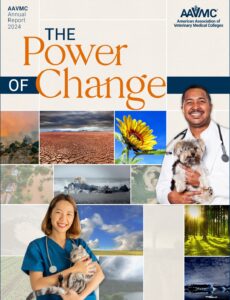
SHARE